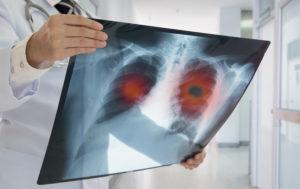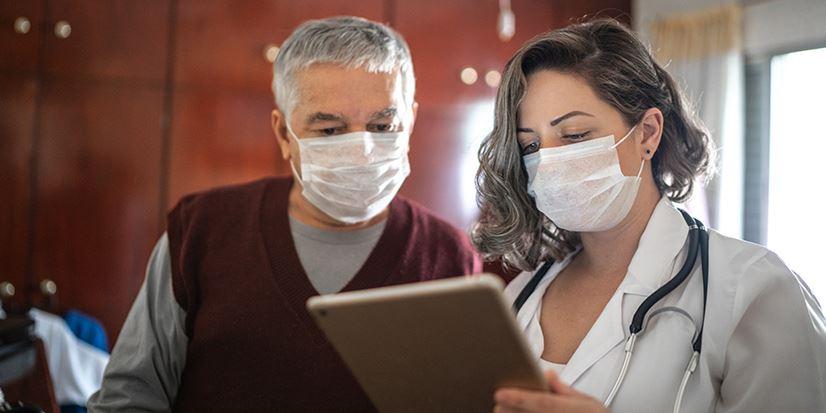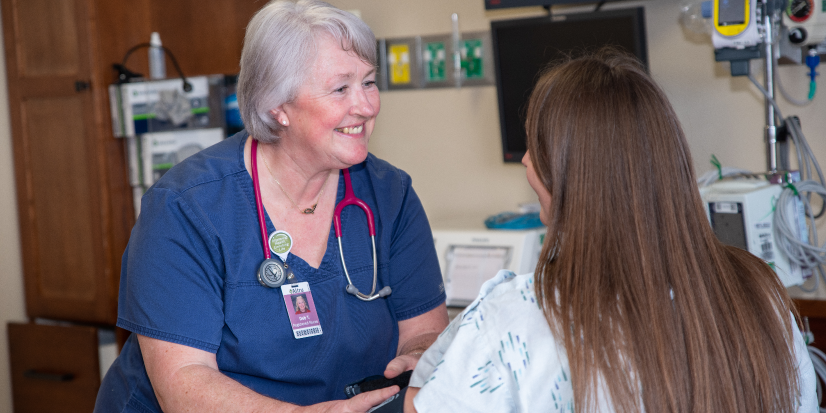Updated 2.3.2022
Cancer. A heavy topic, but never more so than when discussed in the doctor’s office. In the United States, 23.3 million people have a cancer diagnosis, and it is the second leading cause of death, with heart disease having a slight edge.
While any diagnosis of cancer is serious, cancers that are caught early carry a higher chance of a positive outcome. Screening for certain cancers is an important part of healthcare. Screening is a term used for testing for a disease when the patient is not currently experiencing any signs or symptoms of the disease. While many medical societies give recommendations for screening, the most commonly followed recommendations come from the United States Preventive Services Task Force (USPSTF).
Keep in mind that these are broad recommendations and may not be appropriate for every individual. It is important to have a discussion with your doctor to determine if screening is what’s best for you.
Breast Cancer
October is Breast Cancer Awareness Month. You have likely seen the pink ribbons that symbolize the fight against breast cancer, but you may be less familiar with recommendations when it comes time to screen for it. Based on USPSTF recommendations, all women ages 50 to 74 should have every other year screening for breast cancer with mammography. There are other recommendations by various organizations that start this at age 40 and do them yearly. It is important to speak with your primary care provider to discuss your personal risk.
Colon Cancer
The screening tool that seems to receive the most resistance from patients is colonoscopy. However, it remains the gold standard for the screening of colon cancer. There are other options that are less well known. Fecal Immunochemical Test (FIT) can be performed yearly or FIT-DNA, more commonly known as Cologuard, can be performed every three years. These options are both stool samples. The FIT tests for blood products and the FIT-DNA adds a test for the DNA found in cancer cells. Some people find these options attractive as they are less invasive and are as simple as providing a stool sample. The trade-off is that they are slightly less effective (80-90%) when compared to the colonoscopy, and they are required to be performed more frequently. Colonoscopy is only performed every 10 years if the previous exam was normal. Regardless of which option is chosen, it is recommended that all individuals be screened between the age of 50 and 75. Some individuals should start earlier if they have a significant family history of colon cancer.
Cervical Cancer

Papanicolau smear, better known as a pap smear, is the mainstay of screening for cervical cancer. Since its usage became widespread, deaths related to the disease have been cut in half. Cervical cancer screening is recommended for women once they hit the age of 21. That entails a pap smear every 3 years for women ages 20-29. Once a woman reaches the age of 30 she can undergo HPV “co-testing”. This includes testing for the HPV virus along with the pap smear. Adding the HPV test allows us to extend screening to every 5 years until she reaches the age of 65, at which point screening should be discontinued. If at any point these tests return abnormal, it may require more frequent testing or possibly a procedure to collect more tissue samples.
Lung Cancer

The USPSTF recommends that smokers may benefit from low-dose CT scans (LDCT) to screen for lung cancer on a yearly basis. The recommendations are for individuals between the ages of 55-80 who have a 30+ year history of smoking to receive this exam. If someone has quit smoking for more than 15 years, they can discontinue screening for lung cancer at that time.
These are the cancers that the USPSTF recommends screening for. Many other cancers exist, but there is not enough evidence that screening for them is beneficial for patients. The reasons not to screen are often overlooked. No test is perfect. There is always a chance the results are incorrect. Whether the incorrect result is a false positive or false negative, there are serious implications. False negatives will give a false sense of security when cancer does exist and goes untreated until symptoms develop or it is time for the next screening. On the other hand, a false positive can lead to unnecessary follow-up tests and procedures. This adds undue cost, anxiety, and potential for complications. For these reasons, screening is not as simple as it may seem and is only appropriate under certain circumstances. If you feel that you meet the criteria for cancer screening, have a discussion with your primary care provider to determine if screening is in your best interest.
Altru Family Medicine Residency trains 24 bright, engaging, young physicians with eleven faculty members committed to providing comprehensive medical care including, but not limited to, obstetrical, childcare, sports medicine, dermatology, or general medicine. We are here for you, would love to treat you, and are anxious to respond to your family’s needs from cradle to grave.
To schedule an appointment at Altru Family Medicine Residency, please call 701.780.6800.







